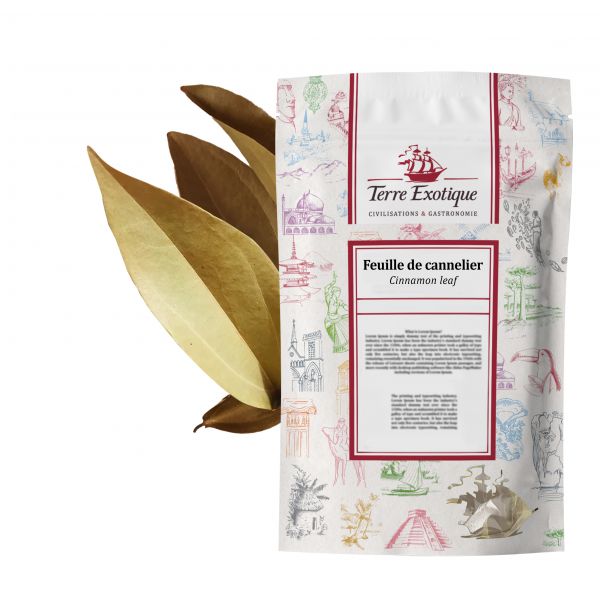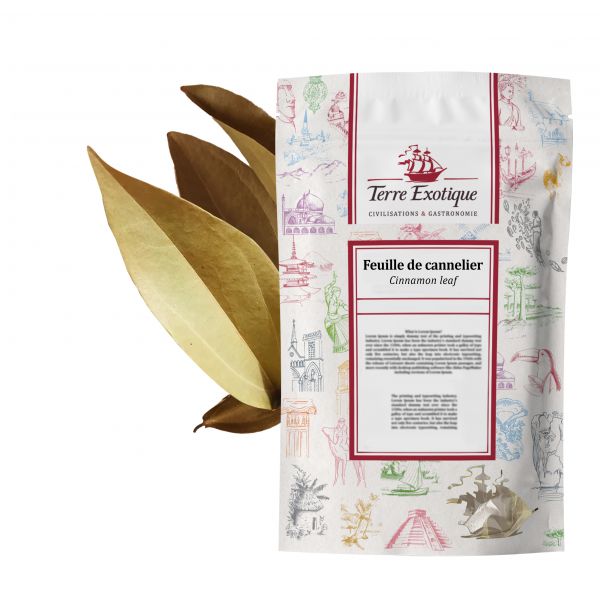



How to Use Cinnamon Leaves?
Cinnamon leaves integrate perfectly into curries, stews, and infusions. They can be used whole to infuse dishes or ground for a more intense flavor.
Some Recipe Ideas for Using Cinnamon Leaves
- - Cinnamon leaf tea: Infuse a few cinnamon leaves in hot water with black or green tea to create a deliciously fragrant beverage;
- - Wild rice with cinnamon leaves: Add cinnamon leaves to the cooking water of wild rice to give it a subtle and fragrant flavor;
- - Chicken curry with cinnamon leaves: Incorporate cinnamon leaves into your chicken curry recipe for a warm and spicy flavor;
- - Yogurt with cinnamon leaves: Mix chopped cinnamon leaves into plain yogurt for a healthy and flavorful snack;
- - Grilled fish with cinnamon leaves: Wrap fish in cinnamon leaves before grilling to impart a woody flavor.
What are the Aromas of Cinnamon Leaves?
Cinnamon leaves emit a complex and spicy fragrance with hints of cloves, bay leaves, and a touch of sweet cinnamon. Their aroma is both penetrating and delicately sweet.
The Botanical Origin of Cinnamon Leaves
Botanically known as Cinnamomum verum, cinnamon leaves come from the lush forests of Sri Lanka. This evergreen plant is carefully cultivated to preserve its unique aromatic properties.
A Historical Spice
The culinary history of cinnamon leaves dates back to antiquity, where cinnamon was a precious spice used in medicine and perfumery. Originating from Sri Lanka, the most prized variety of cinnamon tree, Cinnamomum verum, has been used for its leaves in Asian cuisine, particularly in traditional dishes such as curries and stews. The global spread of cinnamon during the colonial period contributed to its integration into international cuisine. Today, cinnamon leaves are still used to bring a subtle aromatic nuance to various dishes, reflecting the rich culinary heritage of this ancient spice.
| Price/kg | 190 |
|---|---|
| Allergen | Absence |
| Native country | MADAGASCAR |
| Genus and botanical species | Cinnamomum zeylanicum |
| Ingredients | cinnamon leaf |
| Nutritional Info | VN Energie pour 100 g (energy for 100g) : 1000 kJ / 243 kcal VN Matière grasse (fat) : 1.2 g Dont acide gras saturés (of which saturated fat) : 0.4 g VN Glucides (carbohydrate) : 27.5 g Dont sucres (of which sugars) : 2.2 g VN Protéines (protein) : 3.9 g Vn Sel (salt) : 0.025 g |
| Contenance | 50g |
| TRACES EVENTUELLES D'ALLERGÈNES | céleri, sésame, moutarde, fruits à coques. |
 Français
Français 

